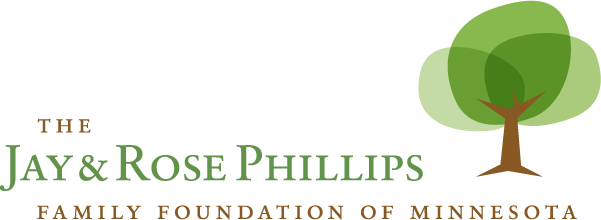By Kale Siebert, IT Careers Preparation Specialist – Jewish Family and Children’s Service of Minneapolis
As a PSEI VISTA, we have ample opportunity for professional as well as personal development. There is a large emphasis on attending workshops and conferences to expand on and solidify values and to create networking opportunities with like-minded people in the community. Kia Her, Emily Goodhue, and Emma Olson, fellow PSEI VISTAs, attended the Overcoming Racism Conference at Metropolitan State University in Saint Paul, Minnesota last November. The conference was focused on exploring ways of transformation in many contexts, including personal and institutional change to promote equity and social justice for all people.
I sat down with Kia, Emily, and Emma to talk about their experience and the workshop they designed for our VISTA cohort. Their presentation brought up the problem of racism and discussed the different ways in which it is present in our society. There were activities that our cohort was asked to participate in that helped to spur conversation about racial issues. During the interview we also discussed the reasons why they decided to attend the conference, I had them share some highlights from the event, and we went over the mechanics involved with taking their experiences from the conference and translating it into their own workshop that they presented in January:
First things first, why did you decide to attend this conference?
Kia: I was interested in attending because the focus of the conference was relatable to my work as well as my personal experiences. My current service project at Goodwill/Easter Seals is directly involved with racial equity. I also wanted to be able to network individuals who share the same interests as me, and I wanted to learn more about equity issues in the Twin Cities area.
Emily: I wanted to attend because the focus of the conference aligned with my personal interests. I was attracted by the opportunity to explore these issues further and learn about how they are being discussed and addressed in the Minneapolis/St. Paul area.
Emma: My focus was on professional development and the transformation aspect of this conference. A large part of my VISTA year has been transformation both personally and professionally. My host site supports many people of diverse backgrounds, and I felt that the conference would help me to better serve them and become a better advocate for change.
Let’s delve into the conference itself, then. What were some main highlights of the conference that you liked? Was there anything that you did not like?
Kia: I really liked the keynote speakers: Maykao Hang from the Wilder Foundation and Sam Grant from Metro State. Their personal experiences, as well as the experiences of the other facilitators, were inspirational because they told stories about transformation and how they arrived at where they currently are in their lives. Sam Grant put an emphasis on people reconnecting with themselves and nature to help connect across races, which I also found interesting.
Emily: I personally found the workshop facilitated by a trainer named Heather Hackman to be very interesting. She talked a lot about white privilege, but it was presented in a way that was understandable and engaging for the audience. Also, being around others interested in the same issues helped me to gain more insight about the discussions going on in the area. The only thing I didn’t like was that there wasn’t much discussion of what concrete actions steps to focus on moving forward regarding the equity issues being discussed.
Emma: I liked the storytelling workshop the most. I found it to be powerful because the stories could be related to on a personal level and also a cultural level by the audience. There was a lot of emphasis on transformation and talk about how the “norm” perspective affects others.
How did you three feel about translating what you experienced and learned into your own workshop to bring to the cohort?
Kia: I was very excited for the opportunity. I had never done anything like it before, but it was fun to work with Emma and Emily to recreate our experiences. It took a lot of skill and strategic planning on our part.
Emily: I’ve helped others facilitate workshops before, but I’ve never created my own, so it was a good experience to be on the planning side of things. I was also really excited to see how the activities we chose would play out in reality. It was hard to manage our time, though, and I wish that we had created more time for small group discussions. Timing is definitely something that we need to work on next time.
Emma: It was absolutely intimidating to be honest. The hardest part was translating what we learned into something that could be meaningful and useful to the cohort. We questioned how we could talk about race in a more in-depth manner. Overall though, I think it went well. We put a lot of effort in; three in-person meetings and a ton of emailing back and forth to be exact.
Finally, what were the main ideas that you wanted the cohort to take away from the workshop?
Kia: We struggled with gauging the amount of experience the cohort had with the content, but regardless of that, I wanted everyone to be aware of the issues discussed and to use that awareness to shape their development as professionals.
Emily: My main goal was to get people to start engaging others in discussion about these issues and to help those discussions be more productive. It would be good to brainstorm ways to prevent people from getting defensive and/or uncomfortable so that we can foster more of these discussions.
Emma: I hope people take away that there is a lot of growth that we all can do. I know that there is a lot of growth that I personally want to do. I think we started a dialogue in the cohort that should be continued.
